All the tips about backpacking in Cyprus and visiting Paphos that you’ll ever need in this nifty beginner’s guide!
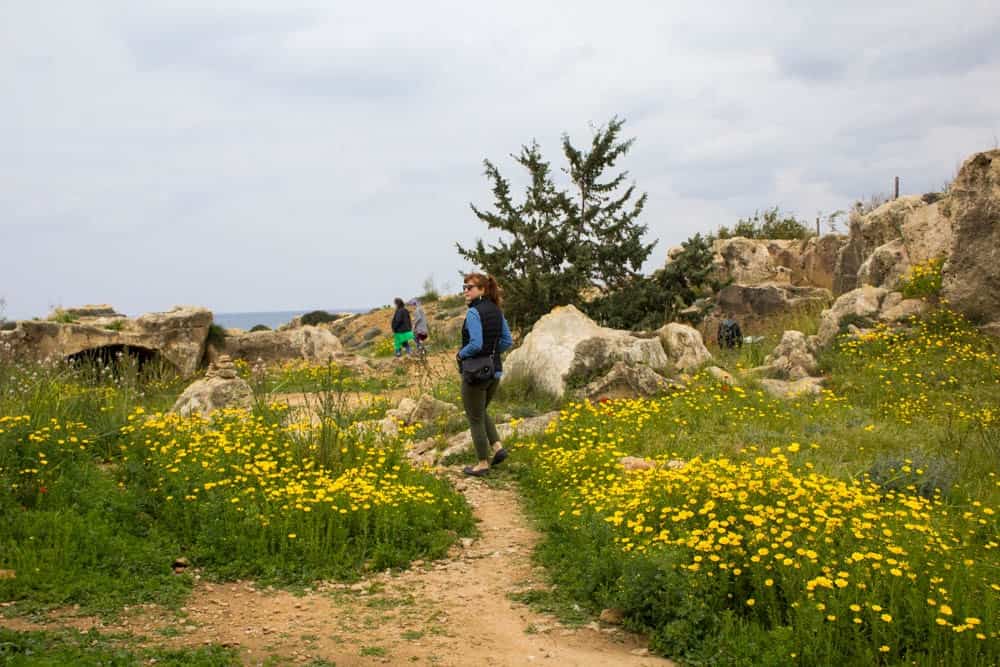
Cyprus wins major historical points. By legend, this 9,250 km island is the birthplace of the ancient Greek goddess of love Aphrodite.
However, the modern enmity between its Greek and Turkish inhabitants rivals ancient greek mythology with its continued reconciliation efforts today.
In 1974, Turkey invaded Cyprus twice and after the 2nd invasion, both parties established the ceasefire which is known as the Green Line.
Both sides effectively partitioned the United Nations troops patrolled this “Green Line” dividing the two parts: the northern third inhabited by Turkish Cypriots and the southern two-thirds by Greek Cypriots.
Both Turkish and Greek people were moved hastily to their matching nationality’s side and until 2008, the border remained closed due to the Turkish occupation of the north side of the island.
Neither the United States, nor any country, other than Turkey, recognises the “Turkish Republic of Northern Cyprus”.
Sprinkled with castles, churches, monasteries, mosaics, white-sand beaches along the blue seas, Cyprus is also a land for romantics.
Autumn is by far the best time to explore because temperatures remain enjoyable through to December, with a daily average of 20C.
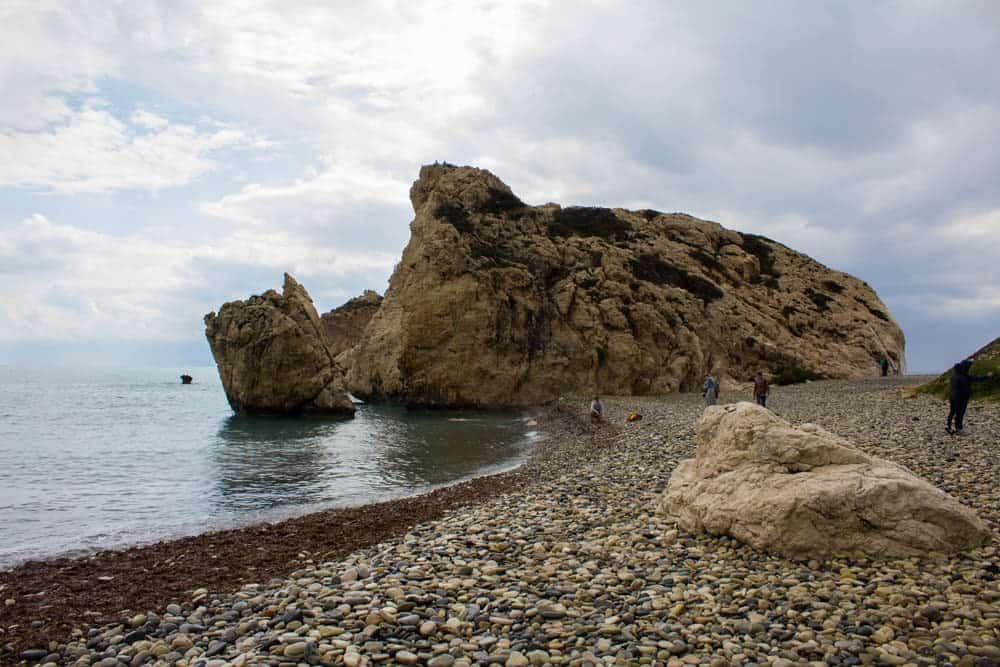
Table of Contents
Things To Do In Cyprus
Because Cyprus is in the EU, the amenities are similar to most major modern European cities stocked with affordable wine and pork products. The island invites you to acclimate swiftly and just enjoy the sunny, beach life.
Within Cyprus, sitting on the SouthWest coast, Paphos is a lovely city that follows the deep history of Greek gods and even the biblical times of Paul.
Ancient ruins of tombs, fortresses, theatres and villas at Paphos Archaeological Park can now be found scattered throughout the modern city.
Explore The Ancient Ruins, Paphos
The most well-known archeological site in Paphos is the Tombs of the Kings (open 8.30am-5pm daily). A UNESCO World Heritage Site since 1980, underground tombs that are carved out of solid rock date back to the Hellenistic and Roman periods.
Contrary to the name and size and splendour of the tombs, the tombs were not actually built for kings, but for high ranking officials and aristocracy. Entry fee into the tombs and large surrounding archaeological area is €2,50.
In the middle of the city near the Paphos harbour lies Kato Paphos Archaeological Park (daily April-Oct, 8am to 7.30pm, Nov-March 8am-5pm; €3.40/ £3) which houses the most impressive Roman mosaics in the eastern Mediterranean.
If you are an history enthusiast, the Department of Antiquities special entry card give you access to all its museums and ancient monuments in Paphos.
Prices are as followed: One (1) day entry cards – €8,50, three (3) day entry cards – €17,00, seven (7) day entry cards – €25,00.
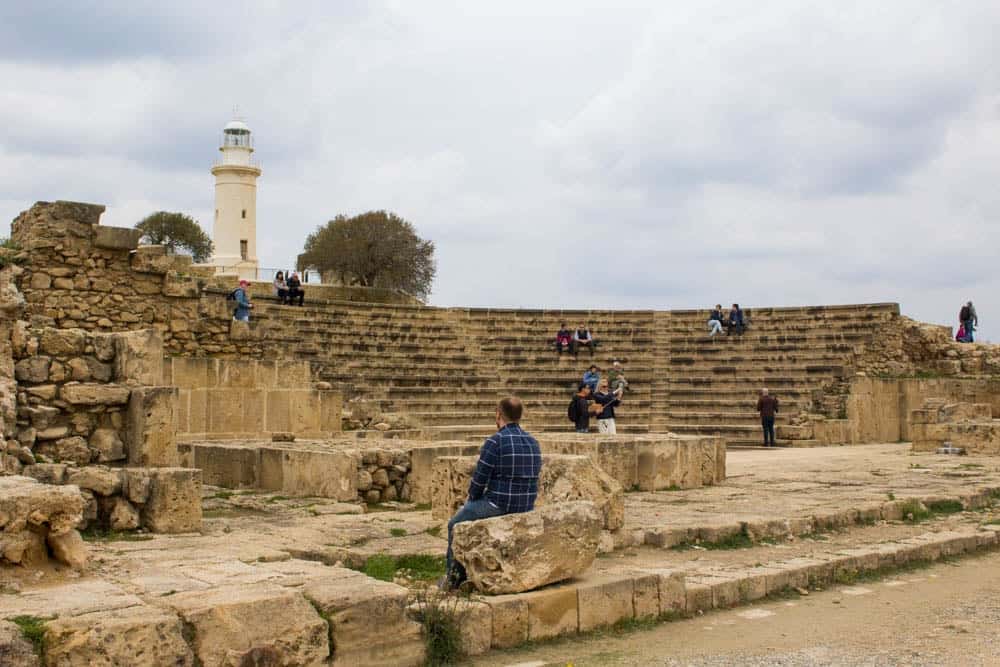
Relax On The Many Beaches
It’s no surprise that the island of Cyprus is filled with beaches. Take your pick of the many resorts and hotels that sit right on the coastline.
However, you will find that the rocky coast may mean you have to travel to the nearest sandy beach. Just 6 km North of the city of Paphos, Coral Bay is a popular tourist resort characterised by rocky headlands and sea caves.

Drive The Mountainous Wine Route
In the morning, you can find yourself on the beach and in the afternoon at a winery in the mountains!
Cyprus has a long standing history with wine (think…. Greek gods and goddesses) and it is the perfect location for it! Several wine routes will take you as far as 3 hours inland into the curvy mountain views near Paphos.
Fikardos winery was the closest to Paphos and the most interactive when it came to showing us their production area and wine sampling.
The other two that we visited, Sterna Winery & Museum and Vasilikon Winery Cyprus, were further north towards the monastery and while the views were nice to enjoy, the interaction was somewhat lacking.
If you are looking to sit and enjoy a wine though, Sterna Winery is what I would suggest. It’s a small cozy little winery store with a little menu option and a nice view.
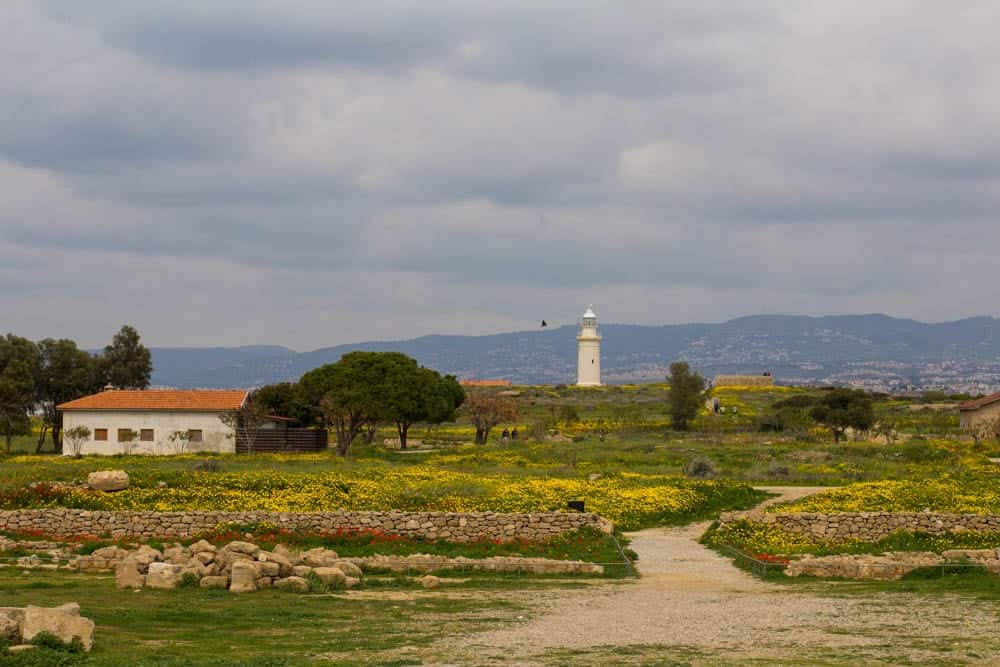
Explore A Monastery
Along the way, find the Saint Neophytos Monastery and learn about the monk community. The Saint Neophytos Monastery which was founded in 1159 is situated in up into the mountains and is only a 30 minutes drive from Paphos.
It is one of the best-known monasteries in all of Cyprus. There are painted rooms builtin to the walls of the mountain that you can, with a ticket go in. The ticket also gives you access to the monastery’s small museum which is filled with books, scepters, and a lot of other greek orthodox antiquities.
At one point the monastery had peice of wood from Jesus’s cross as a relic, though it is no longer there. The monastery also has a small church that is open to the public.
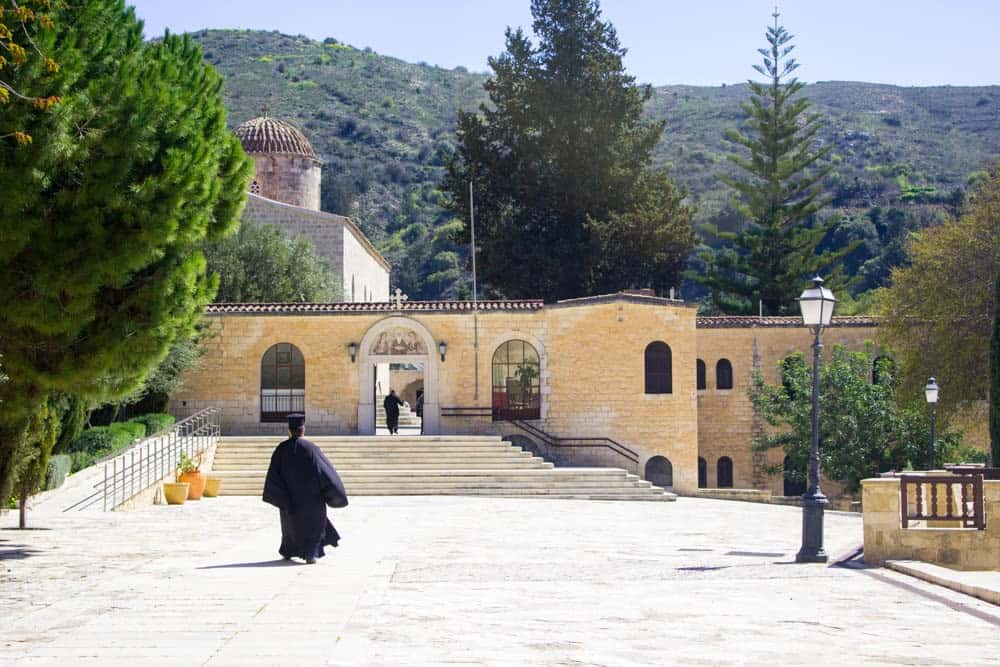
Hike The Avakas Gorge
Sixteen km west of Paphos located at the start of the Akamas peninsula is the amazing masterpiece of nature, Avakas Gorge. Visitors can enjoy an easy 1 hour hike into the mountains that eventually surrounds you with by deep rolling rock walls.
This walk exceeded our expectations. It is a great option for hikers and nature lovers, and it is family friendly (but not stroller friendly).
Take a quick dip in the water’s by Aphrodite’s Rock – South of Paphos is the popular stop at Petra tou Romiou, also known as Aphrodite’s Rock which is mythology as the birthplace of Aphrodite. We almost missed it because the road doesn’t actually have an exit for the site.
The cafe nearby had a parking lot with an underpass walkway to the water. The beautiful area that is known in the ground is just layers of water polished stones and the sound the ocean made as it ebbed and flowed was enchanting.
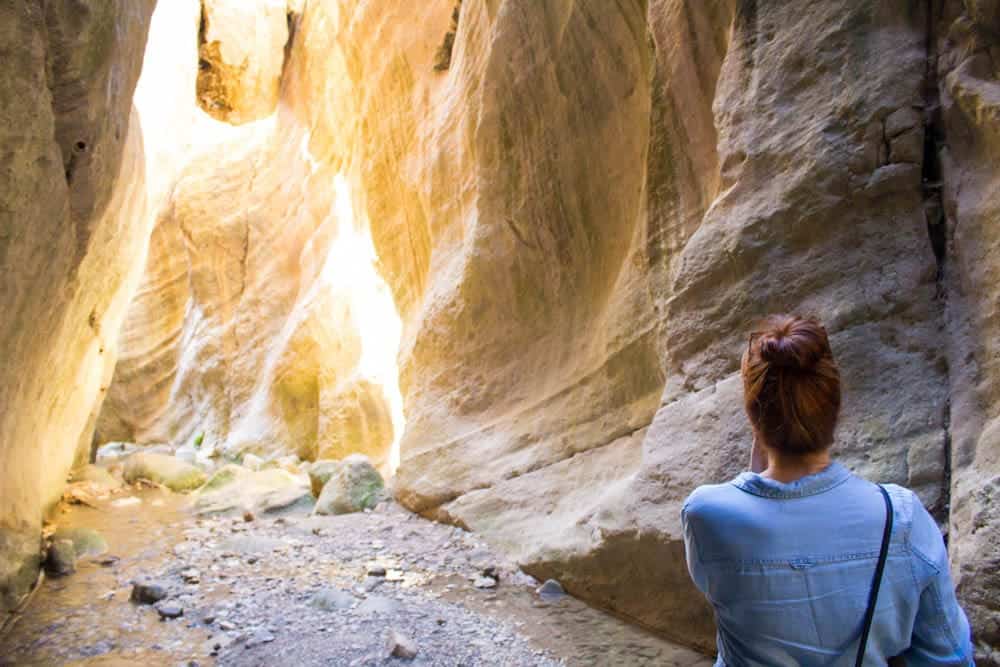
Bonus: Tour The Downtown Area Of The Split Capital, Nicosia
If time allows, the 2.5 hour drive to Nicosia which is the last divided capital cities in the world (think Berlin, but nicer). If your passport allows it, you can cross between the 2 checkpoints in the middle of the city.
There is a Greek passport control that you walk past, then for about 100 meters, you literally are in a neutral zone of unoccupied buildings before having your passport checked at the Turkish checkpoint.
And ironically enough, walking the Ledra Palace checkpoint was one of the more interesting sites in Nicosia due to the history it holds.
The Ledra Palace was formerly one of the most glamorous hotels in the capital. Now it acts as a UN neutral meeting point for not only governmental meetings for conflict resolution but also a place Turks and Greeks can come to meet for business.
It was eerie to walk through this ‘no-mans’ land and stop for a quick coffee at the meeting place while remembering the harsh history that brought them to this point.
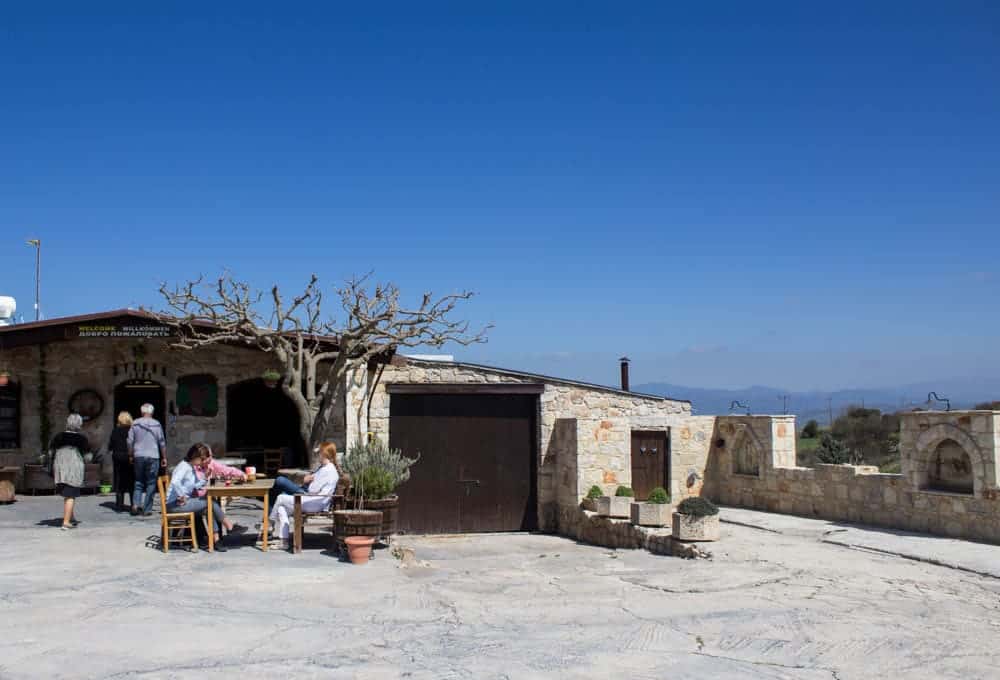
General Advice For Backpacking In Cyprus
Entrance and Visa
- Since Cyprus was once part of the Commonwealth, the 1 million people large island is still a large tourist destination for Brits and other Europeans as well. Many airlines provide flights from Europe straight into the Paphos airport on the Greek side of Cyprus.
- Cyprus is a member of the European Union but is not a party to the Schengen Agreement. Persons with EU and American passports are allowed entry without any prior application. Of course, passports should have at least six months of remaining validity.
- You may need proof of sufficient funds and a return airline ticket.
- Cyprus allows foreigners to stay up to 90 days for tourist or business purposes without a visa. For stays longer than 90 days, you will need a temporary residency visa.
- For EU and U.S.-citizen travelers to be protected by their home countries, it is important to enter and exit Cyprus ONLY at Larnaca and Paphos airports and at the seaports of Limassol, Larnaca, and Paphos. Entry at Ercan Airport in the northern occupied territory is not considered to be a “legal” entrance into Cyprus by the government of Cyprus.
Languages
- While the official language is Greek for the southern side and Turkish for the northern side. Being a former commonwealth territory, most people do speak English. The signs are in English as well.
- The official language of the north side of Cyprus, also known as the Turkish occupied territory is Greek Turkish. It is harder to find English speaker in this area.
Currency
- Cyprus uses Euros.
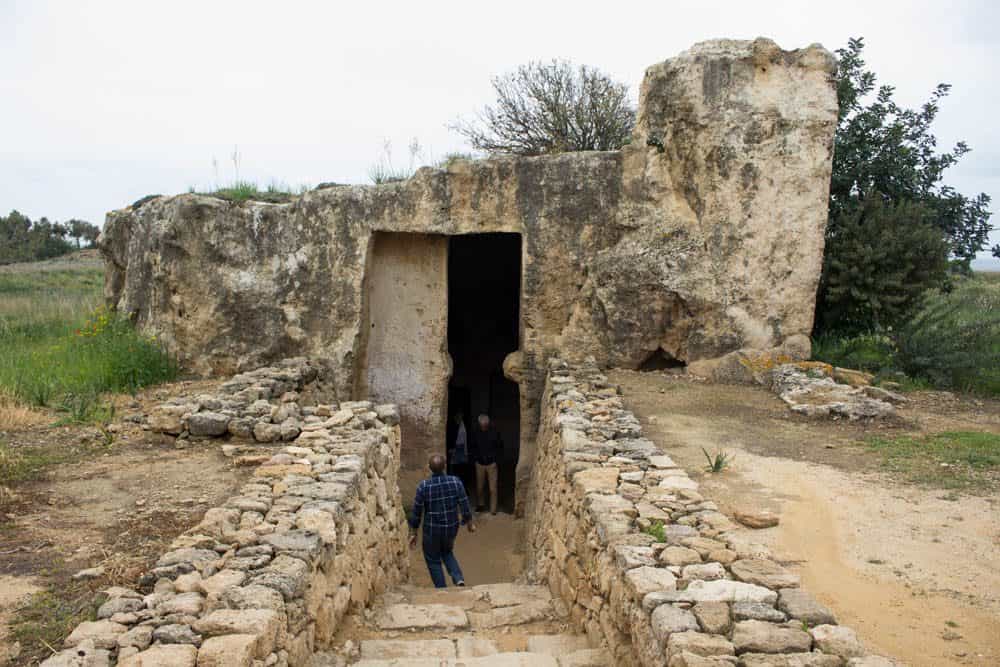
Staying Healthy while backpacking in Cyprus
- The summers are warm and staying hydrated is important. Water on the island is safe to drink, but if you are still concerned drink only filtered water.
- Restaurants all follow normal food codes and regulations like their neighboring country of Greece.
- Medical care is available both at government hospitals and private clinics.
Food And Accommodation
- Many grocery stores are scattered throughout the city and prices are reasonable for being a water-locked country.
- Depending on your accommodations, your hotel could provide half or full board. If you rent an apartment, having cooking facilities will make meals cheaper.
- Accommodation can be as luxurious or simple as you desire. Simple apartment style accommodations start around 30-50 Euros. Even 4 star seaside resort locations start as low as 70 Euros and go up from there.
Safety
- Every city in every country in the world has parts where you shouldn’t go at night; Paphos and other Cyprus cities are no exception. As always, there can be pickpocketing in every city. Be alert and always aware of your surroundings and of your personal belongings.
- Because Cyprus is split between Turkey and Greece. Do not, under any circumstances, attempt to enter the U.N. buffer zone at any place other than a designated crossing point.
- Never photograph military installations or anything that could be perceived as being of a security interest. Pay particular attention to “no photography” marked areas.
Land Transportation
- Buses are available to ride between cities and within the cities. Daily unlimited bus fares are 5 Euros and weekly is 20 Euros but are only valid from 4 AM – 9 PM within the city limits and some suburbs.
- Renting a car is the easiest and quickest way to explore the island of Greece. The rental cars are NOT allowed to cross over between the Greek and Turkish lands.
- Roads are British style. The driver is on the right side of the car and you drive on the left side of the road. Be careful! There are lots of tourist out there and you will know them because all the rentals have a red license plate.
- The main highways and streets in Cyprus are similar to American standards with easy Exit and On-ramps equipped with gas stations and clean toilets.
- Countryside roads are not created equal. A road on Google Maps does not mean that there is a drivable road. And taking a shortcut road from one of the wineries to the Gorge is NOT a good idea (personal experience). Google maps may tell you it’s a road, but we had a run for our money. The landscape is mountainous and the roads are gravel and dirt. We will suggest to always use the longer route and main roads when traveling between locations! Our little rental car got a little beating from the ‘roads’ we used, and it was not so fun.
- GPS vs. Sim Card: Rental car companies usually have a GPS option for the car. We have found the in last few countries, if possible, that getting a sim card with data is much easier, more convenient, and about the same price. The GPS was 6 Euros a day (30 Euros for 5 days) and we were able to get a MTN sim card with 1.5 GB of data for 22 Euros.
Have you been backpacking in Cyprus? Would you want to travel here one day?

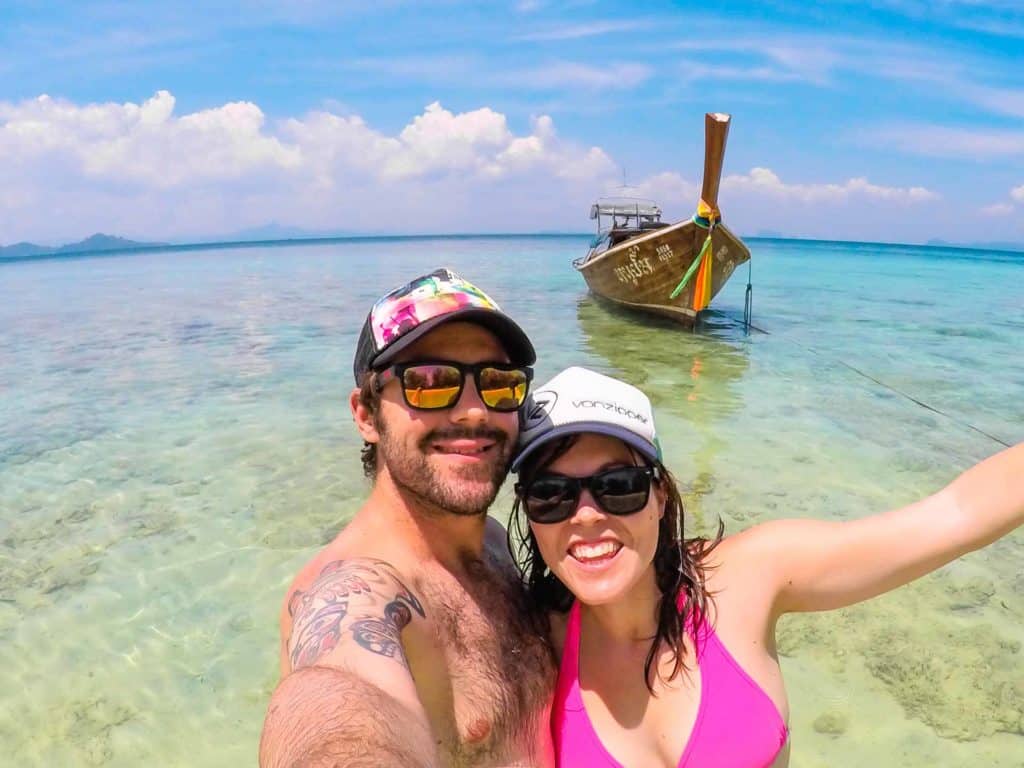
1 thought on “The Beginner’s Guide to Backpacking In Cyprus (2025 Edition)”
Hi guys. Thanks for a helpfull guide. I Do have one point where i have to say you Are wrong.
The northside speak english on a High level and i Will say 50-75% of the people I meet on My 8 travels there spoke english.